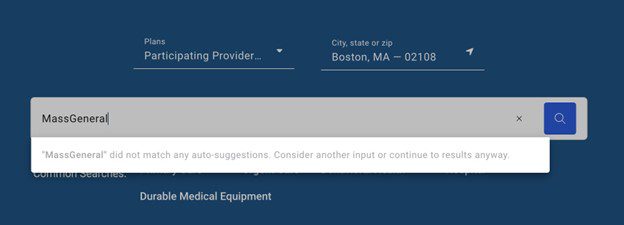Expands and Transforms this Sector
The rapid acceleration of climate change produces increasingly visible and extensive effects that touch nearly all parts of everyday existence. The major concern exists regarding the effect of climate change on both healthcare insurance coverage and the broader healthcare industry. The healthcare system faces unprecedented demands for adaptation due to climate change which creates new health challenges and increases natural disaster risks.
This article examines the ways climate change affects healthcare insurance coverage while assessing associated risks and recommending preparation tactics for individuals and businesses.
The Relationship Between Climate Change and Healthcare Insurance Systems Reveals Significant Impacts on Both Public Health and Insurance Structures
The effects of climate change on public health result in greater healthcare demands which then place increased pressure on insurance companies. Elevated temperatures along with extreme weather patterns and changing ecosystems drive growth in health problems related to climate change. Insurance companies face the challenge of modifying their policies to ensure adequate coverage while maintaining affordable premium costs.
Rising Health Risks Due to Climate Change
Heat-Related Illnesses and Respiratory Problems
Heatwaves: Extended exposure to extreme heat conditions has resulted in increased cases of heatstroke and dehydration.
Wildfires: People who breathe in wildfire smoke face respiratory problems including asthma and COPD.
Waterborne and Vector-Borne Diseases
Waterborne Diseases: Heavy rainfall and hurricanes have intensified flooding which leads to more cases of cholera and other waterborne diseases.
Vector-Borne Diseases: Increasing temperatures and rainfall pattern shifts have enabled mosquitoes to expand their habitat range which leads to more widespread occurrences of malaria and dengue fever.
The financial and medical burdens of climate-related illnesses show why insurance coverage plays an essential role in mitigation.
The Latest Natural Disasters Have Significantly Influenced the Healthcare Insurance Sector
The United States experienced multiple destructive natural disasters in 2024 as shown by news reports and data sources which emphasized healthcare insurance's role in reducing health risks while providing medical care access. These events demonstrate how climate change increasingly affects public health domains.
Hurricane Ian (Florida, 2022)
The hurricane resulted in extensive flooding and destruction of infrastructure which increased health hazards from multiple sources.
Tornado Outbreak (March 2023)
The tornado outbreak across Mississippi and Alabama put local healthcare systems under immense pressure from emergency service needs while healthcare insurances helped manage the unforeseen medical costs.
Wildfires (2024)
California and Texas wildfires produced extensive smoke inhalation-related health problems and injuries across both states. The need for extended medical treatment because of smoke exposure strains healthcare systems and healthcare insurances while highlighting why comprehensive coverage is essential.
The growing frequency of extreme weather incidents demands that people obtain superior healthcare insurance to face upcoming health challenges. Through their valuable assistance in evaluating healthcare options companies like PEO4YOU ensure that residents of disaster-prone regions get the best available healthcare coverage.
The growing frequency of extreme weather incidents demands that people obtain superior healthcare insurance to face upcoming health challenges. Through their valuable assistance in evaluating healthcare options companies like PEO4YOU ensure that residents of disaster-prone regions get the best available healthcare coverage.
Key Insight: The U.S. Government Has Established Multiple Healthcare Insurance Support Policies During Climate Crises to Bolster Coverage and Preparedness for Natural Disasters.
In response to the increasing frequency of natural disasters caused by climate change the U.S. government introduced multiple policies to strengthen healthcare insurance coverage and disaster preparedness.
Biden-Harris Administration's Disaster Assistance Reforms (January 2024): The reforms focus on making federal assistance policies more efficient and speeding up the distribution of funds while offering disaster survivors increased adaptability to obtain necessary resources faster.
National Preparedness Initiatives: These initiatives adopt a whole-community approach which brings together multiple sectors to protect the nation from hazards like natural disasters and pandemics thus boosting national resilience.
State Policy Considerations for Disaster Risk and Resilience: States are working with the federal government to implement disaster management policies that target risk reduction and infrastructure resilience together with centralized planning.
The nation's preparedness is reinforced through these policies which make sure healthcare insurances can handle the increased demands during climate crises.
How Companies Are Affected by Climate Change
Agriculture and Healthcare Insurances
Worker Health: Agricultural workers face more heat-related illnesses during heatwaves and extreme weather events which leads to a need for enhanced healthcare insurance coverage to handle these medical costs.
Food Security: Food supply interruptions from droughts and floods cause malnutrition health problems which drive the need for more extensive healthcare insurance coverage.
Real Estate and Healthcare Insurances
Coastal Risks: The rise in sea levels and flooding in regions such as Miami forces families to relocate and results in a surge in healthcare demands to treat both physical injuries and mental health problems.
Wildfire Zones: Wildfire-prone regions encounter enhanced risk for property destruction and health emergencies which require specialized insurance benefits to address medical care needs and relocation costs.
Current climate challenges across different industries require insurers to develop adaptable healthcare insurance policies.
Conclusion: Comprehensive healthcare insurance solutions enable effective preparation against climate-related challenges.
The healthcare insurance sector faces new challenges as climate change introduces unknown risks for people and companies as well as insurance providers. The growing demand for disaster-related care along with increased health risks demonstrates why comprehensive and adaptable healthcare insurance solutions are more critical than ever.
PEO4YOU functions as a trusted intermediary that connects individuals and small businesses with health insurance providers and offers expert advice to secure optimal healthcare insurance plans. PEO4YOU provides specialized solutions based on particular needs and regional risk factors which enables clients to manage healthcare challenges related to climate change with assurance.
PEO4YOU provides dependable assistance when selecting healthcare insurance options to meet the medical demands of an evolving world.
Recent Posts
Get In Touch— We’re available 24/7
"*" indicates required fields
“We respect your privacy. Your contact information will be used solely for the purpose of responding to your inquiry and will not be shared with third parties.”
Click To Open Modal
Get In Touch— We’re available 24/7
"*" indicates required fields
“We respect your privacy. Your contact information will be used solely for the purpose of responding to your inquiry and will not be shared with third parties.”
Thanks!
We will be in touch soon.
If you're looking to book a consultation now
Affordable health and benefits plans for small businesses, freelancers, and independent contractors.



Copyright © 2026. Peo4you. All rights reserved.











